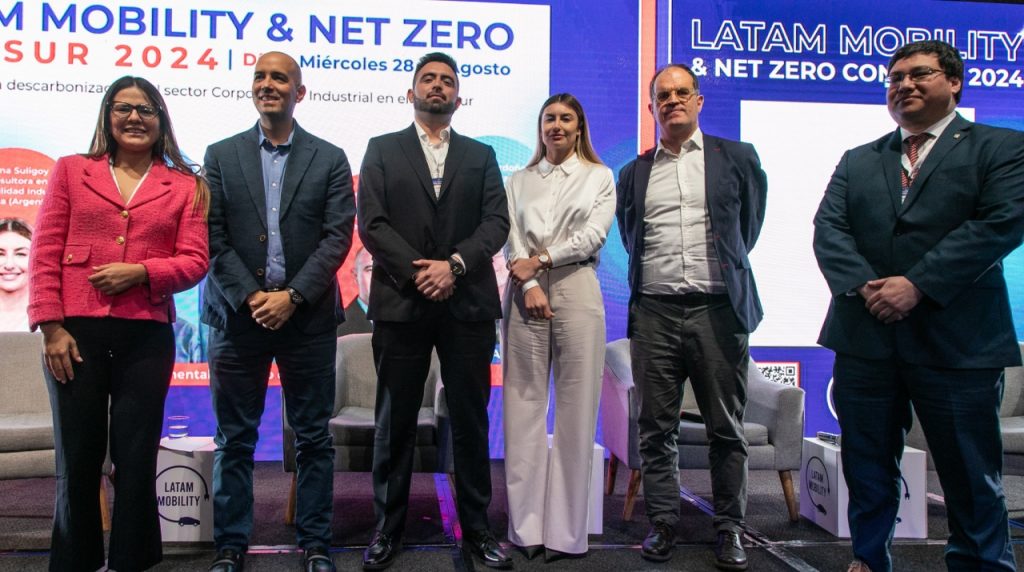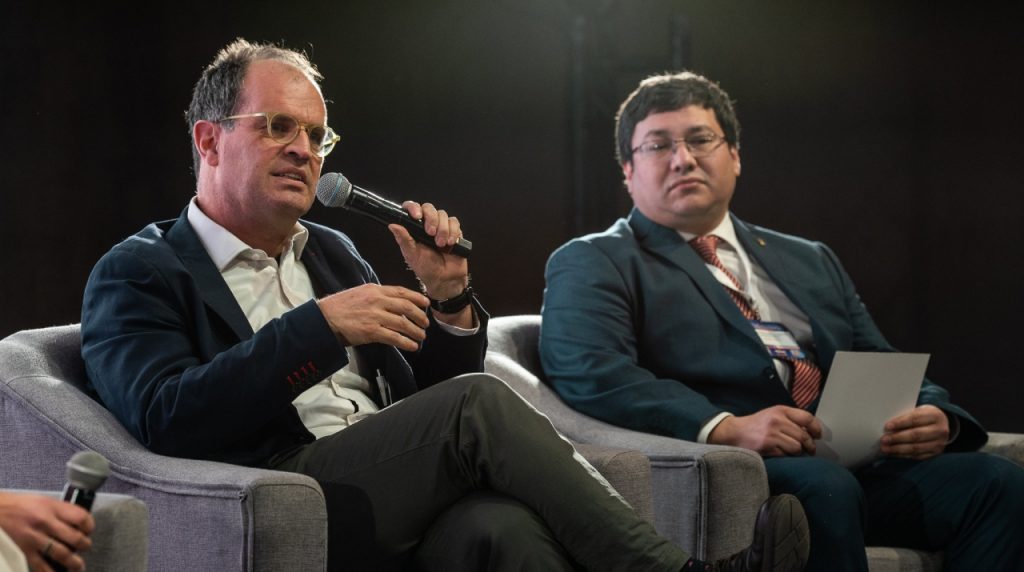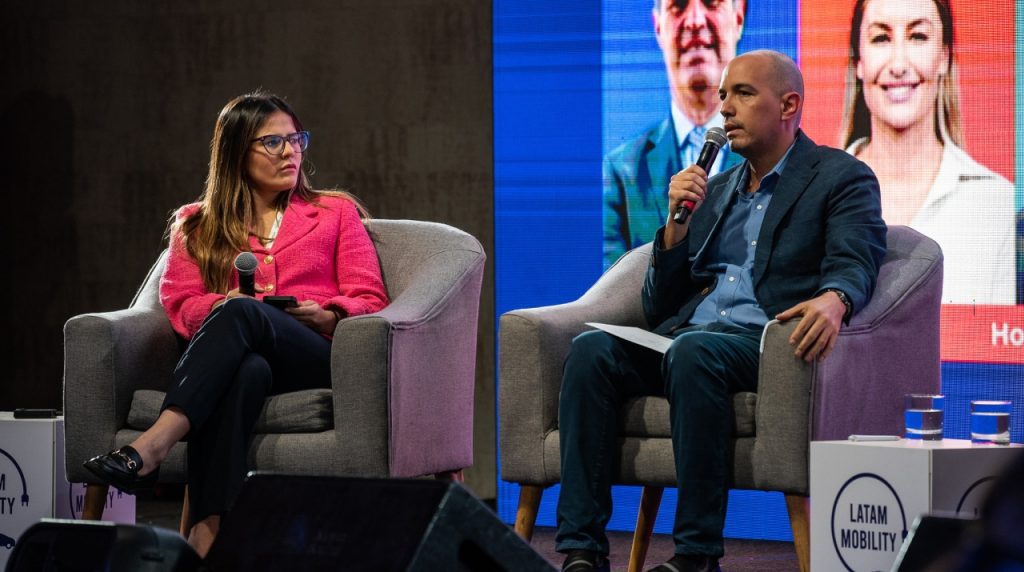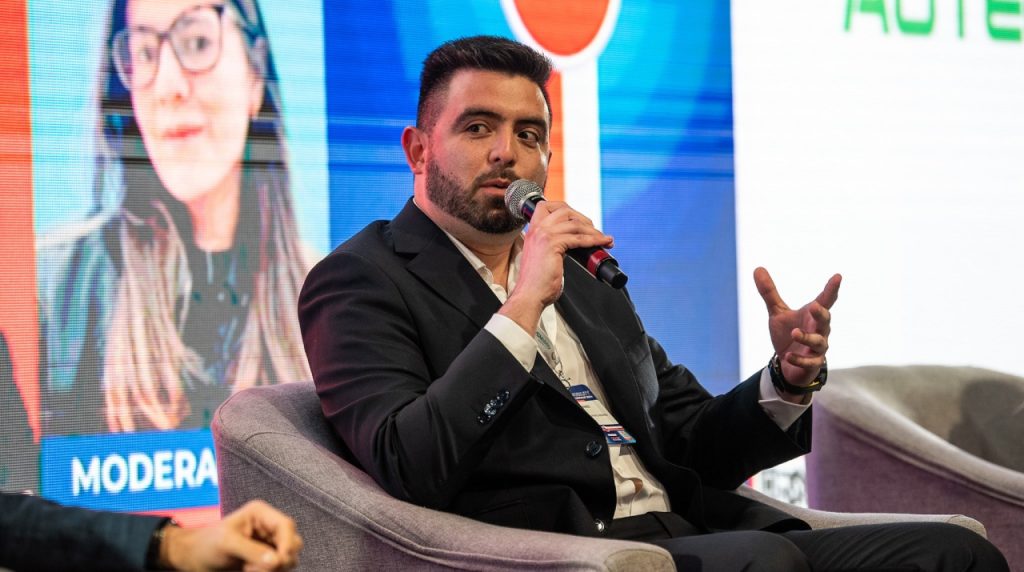
Corfo, Huawei Digital Power, Grupo Vial Abogados and PepsiCo discussed the decarbonization of the corporate and industrial sectors

The Southern Cone of Latin America is on a path towards the decarbonization of the corporate and industrial sectors, where experts from different areas discussed strategies and solutions during Latam Mobility & Net Zero: Southern Cone 2024 to advance in this direction.
Thus, the event brought together Sergio Hernández Berríos, Manager of PV, BESS, and EV Charger Solutions at Huawei Digital Power Chile; Sergio Romero, Distribution and Logistics Manager at PepsiCo Chile; Rubén Pérez, Deputy Director of the CORFO HidraHaul program; Daiana Suligoy, Sustainability Consultant in the Logistics Industry (Argentina); and Arturo Brandt, Senior Counsel at Grupo Vial Abogados. The panel was moderated by Jessica Ordoñez, Director of Sustainability at Invest in Latam.

Challenges in Carbon Footprint
Measuring and managing the carbon footprint is a critical challenge for companies seeking to minimize their environmental impact through the adoption of solar panels at production plants in Chile and the renewal of fleets with electric and gas vehicles.
In turn, it is important to standardize Key Performance Indicators (KPIs) to measure progress in reducing carbon emissions, specifically in the Levelized Cost of Energy and the CO2 Emission Factor as fundamental metrics.

Thus, technology plays an important role in supporting companies in their decarbonization processes, as stated by Sergio Hernández from Huawei.
‘The experience we have is mainly related to decarbonizing through the use of renewable energy by optimizing and primarily reducing the use of diesel generators that companies use as backup for these power generator groups that provide energy when the grid goes down.’
On the other hand, the overall strategy also proves important when setting goals and objectives, as Pepsico has done.
‘We have a global strategy, which is more like a transformation that encompasses everything we do: from the agriculture of our raw materials to production, distribution, and also the marketing of all our products. We apply this in every country with ambitious goals of being sustainable in all the products we make,’ stated Sergio Romero.”
Consulting and Legal Framework
Customer demands are driving companies to adopt more sustainable practices. In Argentina, for example, more and more clients are requiring their logistics operators to measure their carbon footprint.

This external pressure is motivating companies to implement sustainable solutions to comply with regulations and remain competitive in the market.
“The indirect emissions that these clients have, and how they have carbon-neutral strategies for 2030, require them to know the measurement and reduction strategies of these logistics operators. Based on this, in Argentina, logistics operators have started to create sustainability reports and carbon footprint measurement strategies through technology in recent years,” stated Daiana Suligoy.
Moreover, it is important to have a clear and effective regulatory framework to support decarbonization efforts in the region, where the need for strong governance can facilitate the transition to sustainable practices.
“Precisely, this will allow companies to adhere to the standards that best suit their needs, a point detailed by Arturo Brandt.
‘As a carbon footprint measurement strategy, it is important to choose internationally recognized standards, especially for us, as we are exporters of goods and services, to avoid what is known as the neutral standard, which is often used in sustainability reports. In light of this, it is necessary to select those in which the company is portrayed in the best way.'”

“Now, to generate all the energy needed to advance various projects, a sustainable source is required. Hydrogen, from Rubén Pérez’s perspective, could be that path.
‘There was an economically viable opportunity (hydrogen), which was the cranes for our project. That benefit also meant exploring other alternatives to estimate the cost of decarbonization,’ he stated.
‘We are very optimistic and believe that this will indeed develop as new companies take on this challenge. In the coming years, they will start building the necessary capabilities to later move on to business cases,’ Pérez continued.”
In this way, the panelists made it clear that the decarbonization of the corporate and industrial sectors in the Southern Cone is a complex but achievable challenge, as long as the adoption of advanced technologies, organizational commitment, market pressure, and an adequate regulatory framework are addressed.
Finally, everyone agreed that collaboration between the private sector, the government, and civil society will be key to advancing the transition towards a greener and more sustainable economy in the region.





